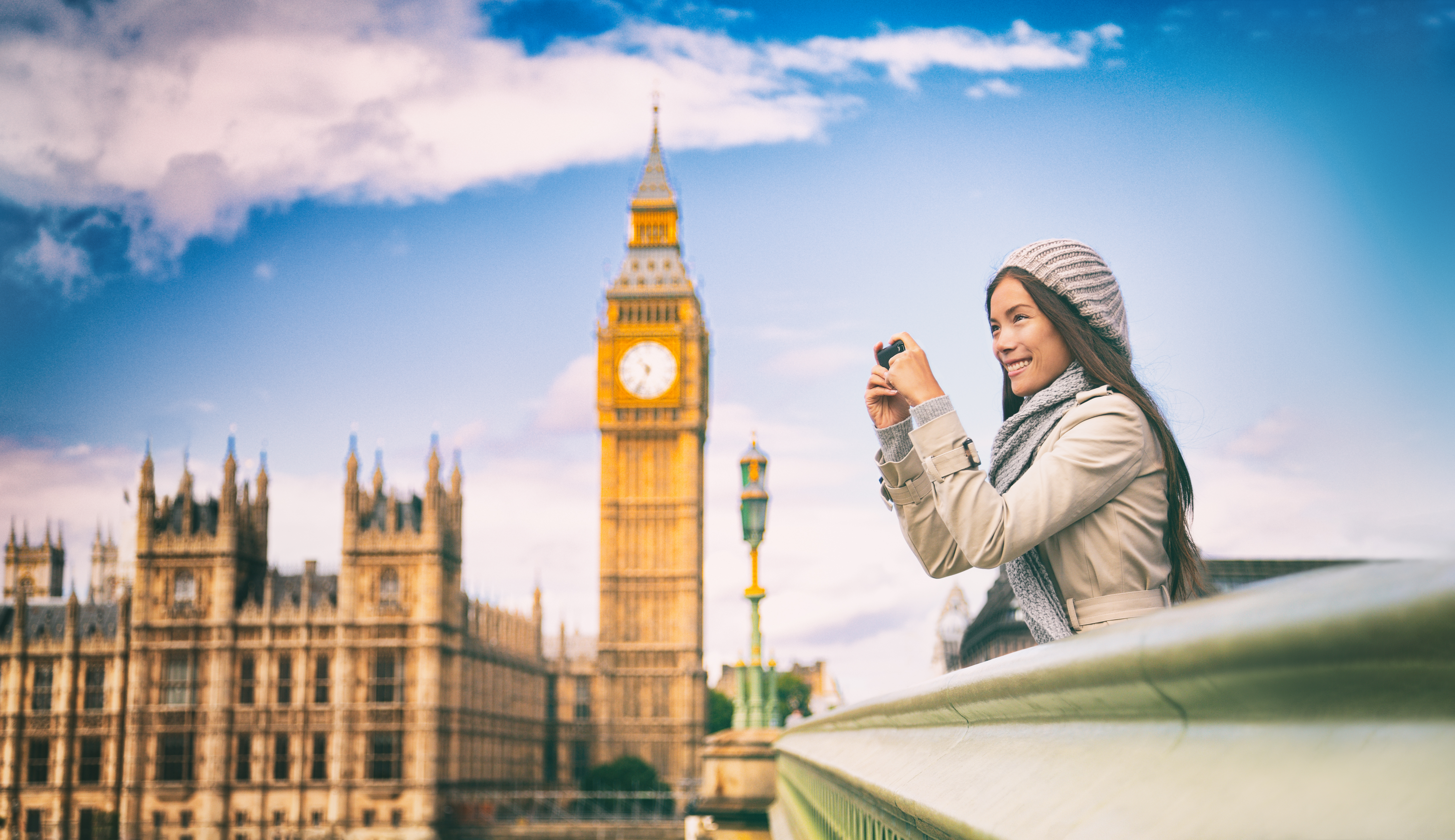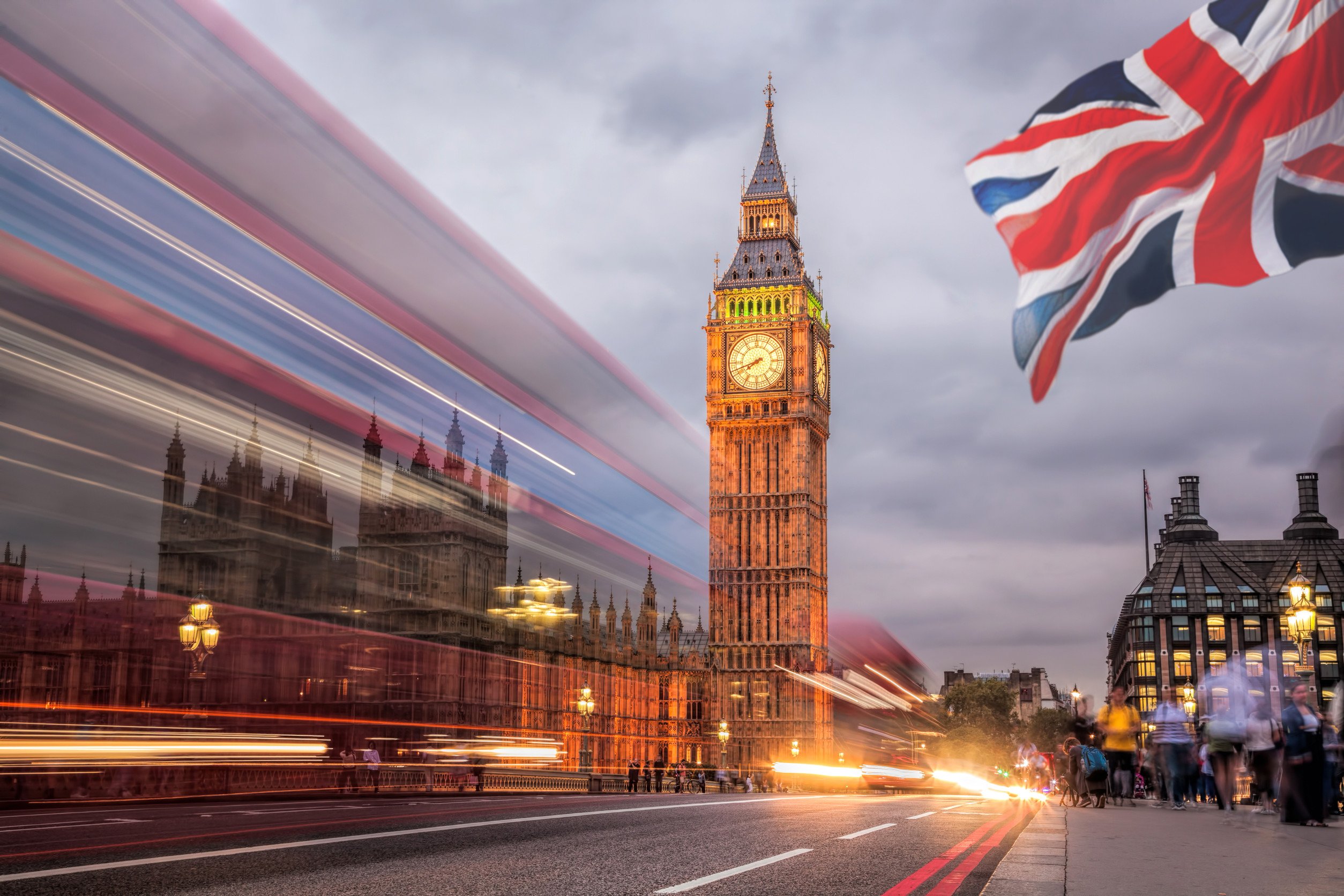UK Tourism: A Global Leader
The UK's tourism sector is a powerhouse, consistently outperforming many of its international rivals. This report explores the key factors driving this success, including recent tourism data, strategic government initiatives, and the UK's unique appeal as a travel destination. We'll also analyze the challenges faced by competing nations, providing a comprehensive view of the UK's position in the global tourism landscape.
Tourism Statistics: UK vs. Competitors
The UK tourism industry is flourishing. In 2023, 38 million overseas visitors chose the UK, contributing a substantial £31.1 billion to the economy. This signifies a notable increase from 2022, with visits rising by 6.7 million and spending by £4.6 billion. While these figures are still slightly below pre-pandemic levels, they demonstrate a robust recovery and underscore the UK's enduring allure.
The average expenditure per visit to the UK is £604, with an average stay of 7 nights. To truly grasp the UK's dominance, let's compare its performance with key competitors. The table below presents a snapshot of visitor numbers, tourism revenue, and market share for the UK and 11 other countries:
|
Country |
Number of Visitors (2023) |
Tourism Revenue (2023) |
Market Share (2023) |
|
UK |
38 million |
£31.1 billion |
3.8% of global tourism receipts |
|
Mexico |
42.15 million |
$30.81 billion |
Ranked 4th globally |
|
Japan |
36.87 million |
$51.78 billion |
N/A |
|
Canada |
74.5 million |
$22.1 billion |
N/A |
|
Australia |
7.5 million |
$48.4 billion |
N/A |
|
Russia |
8.2 million |
$4.96 billion |
N/A |
|
Brazil |
6.8 million |
$6 billion |
N/A |
|
South Korea |
11.03 million |
$15.01 billion |
N/A |
|
Netherlands |
17.3 million |
€99 billion |
14th globally |
|
Thailand |
28.15 million |
$29.7 billion |
N/A |
|
Switzerland |
20.8 million |
CHF 18.4 billion |
Ranked 6th in Western Europe |
|
Turkey |
49.21 million |
$55.87 billion |
N/A |
While some countries, like Canada and Turkey, surpass the UK in visitor numbers, the UK maintains a strong position in terms of tourism revenue. This suggests that visitors to the UK tend to spend more during their trips, significantly contributing to the UK economy. The USA, France, and Germany are the UK's top source markets. In terms of spending distribution, 54% of all inbound visitor spending occurs in London, 33% in the rest of England, 10% in Scotland, and 2% in Wales. Tourism contributes £145.9 billion (7.2%) to the UK's GDP.
Students also play a vital role in the UK tourism industry. 500,000 students visit to learn English each year, spending an average of £2,399 per visit, four times more than the average tourist. These students generate £1.2 billion in export earnings for the UK annually.
The UK offers a variety of tourism experiences, including holidays, visits to friends and relatives, business trips, and educational tourism. In 2018, 77% of inbound visits were repeat visits, highlighting the UK's ability to cultivate visitor loyalty.
Impact of the COVID-19 Pandemic

The COVID-19 pandemic significantly impacted the UK tourism industry. Lockdowns and travel restrictions led to a sharp decline in visitor numbers and spending in 2020. Monthly air passenger arrivals to the UK plummeted by 98.3% from February 2020 to April 2020. Domestic tourist spending also dropped to £34 billion in 2020 from £92 billion in 2019. The restrictions affected all sectors of the economy, with tourism and hospitality suffering notable losses.
However, the UK government implemented various measures to support the industry, including the furlough scheme, which provided over £25 billion to the leisure, tourism, and hospitality sector. These measures, along with the gradual easing of restrictions and pent-up demand for travel, have contributed to the industry's recovery.
UK Tourism Strategy and Initiatives
The UK government has implemented a proactive tourism strategy aimed at solidifying the country's position as a leading global destination. A key element of this strategy is the ambition to welcome 50 million international visitors annually by 2030. To achieve this, the government has launched several initiatives, including:
- Visitor Economy Advisory Council: This council brings together industry leaders and government officials to collaborate on strategies for growth and development.
- National Visitor Economy Strategy: This strategy focuses on promoting tourism growth beyond London, recognizing the potential of other cities and regions.
- Local Visitor Economy Partnership (LVEP) programme: This program aims to transform tourist boards across the country, enabling them to market their areas more effectively and attract investment.
- Short-term lets registration scheme: This scheme seeks to improve the quality of tourist accommodation while protecting affordable housing.
- Tourism Recovery Plan: This plan, launched in 2021, replaced the Tourism Sector Deal and the International Business Events Action Plan. It focuses on driving immediate recovery from the COVID-19 pandemic and supporting the industry to become more resilient, sustainable, inclusive, and innovative.
- Tourism Sector Deal: This deal, announced in 2019, outlined a partnership between the government and the tourism industry to boost productivity, develop skills, and support destinations.
- International Business Events Action Plan: This plan aimed to return the UK to its pre-pandemic position as a leading destination for business events.
- Tourism Action Plan: This plan outlined UK-wide support for the industry, including the Discover England Fund.
- Discover England Fund: This fund supports tourism projects across England.
These initiatives demonstrate the UK's commitment to fostering a thriving tourism sector and ensuring a positive visitor experience.
Factors Driving UK Tourism Growth

Several factors contribute to the UK's success in attracting tourists and generating revenue:
- Cultural Attractions: The UK boasts a wealth of cultural attractions, from world-renowned museums and historical sites to iconic landmarks and vibrant cities.
- Accessibility: The UK has a well-developed transportation infrastructure, including international airports, an extensive road network, and rail connections, making it easily accessible for visitors.
- Marketing and Promotion: VisitBritain, the UK's national tourism agency, actively promotes the country through targeted marketing campaigns and initiatives like "Showcase Britain," which introduces international travel trade professionals to the UK's diverse tourism offerings.
- Government Support: The UK government provides financial support for tourism-related projects, including infrastructure improvements and marketing campaigns.
- Events and Festivals: The UK hosts a variety of events and festivals throughout the year, attracting both domestic and international tourists.
- Economic Factors: Economic conditions, such as exchange rates and disposable income, influence domestic tourism.
- Technological Advancements: New technologies, such as social media and the internet, play a role in influencing domestic tourism by providing information and inspiration to travelers.
- Geopolitical Events: Events like Brexit can influence domestic tourism by affecting travel patterns and consumer behavior.
- Security Issues: Security concerns, including pandemics, can influence domestic tourism by affecting traveler confidence and risk perception.
- Publicly Funded Campaigns: Domestic tourism campaigns funded by the government can impact people's decision-making and travel choices.
These factors, combined with the UK's rich history and diverse cultural heritage, create a compelling proposition for travelers worldwide.
UK Strengths as a Tourist Destination

The UK possesses several key strengths that contribute to its tourism dominance:
- Rich History and Heritage: From ancient castles and historical landmarks to world-class museums and cultural institutions, the UK offers a journey through time and a deep dive into its fascinating past.
- Diverse Landscapes: The UK's varied landscapes, from rolling countryside and dramatic coastlines to bustling cities and charming villages, provide a diverse range of experiences for visitors.
- Cultural Vibrancy: The UK is a melting pot of cultures, offering a vibrant mix of art, music, food, and traditions that appeal to a wide range of tastes.
- World-Class Accommodation: The UK has a wide range of accommodation options, from luxury hotels and boutique guesthouses to budget-friendly hostels and self-catering apartments.
- Accessibility for All: The UK is committed to providing an accessible tourism experience for all, with initiatives to improve accessibility for disabled travelers and those with specific needs.
- Specific Types of Tourism: The UK caters to various types of tourism, including heritage tourism (e.g., castles and historical sites), cultural tourism (e.g., museums and art galleries), and eco-tourism (e.g., national parks and protected areas).
These strengths, combined with the UK's strategic initiatives and proactive tourism strategy, position the country for continued success in the global tourism market.
Technology and Innovation in UK Tourism

Technology and innovation play a crucial role in the UK tourism industry. The government and industry are actively exploring ways to leverage technology to enhance the visitor experience and promote the UK as a destination.
Key initiatives include:
- Tourism Data Hub: This hub collects and analyzes data on visitor behavior and preferences to inform tourism strategies and marketing campaigns.
- Digital Platforms: The UK tourism industry utilizes digital platforms, such as websites and social media, to engage with potential visitors, provide information, and facilitate bookings.
- Online Marketing: Online marketing campaigns are used to promote the UK to target audiences and increase awareness of its diverse tourism offerings.
These initiatives demonstrate the UK's commitment to embracing technology and innovation to maintain its competitive edge in the global tourism market.
Sustainability in UK Tourism
Sustainability is a growing concern in the tourism industry, and the UK is taking steps to ensure that its tourism sector is environmentally responsible and socially inclusive.
Key initiatives include:
- Environmental Protection: The UK government and tourism industry are working to reduce the environmental impact of tourism, including promoting sustainable transportation options, minimizing waste, and conserving natural resources.
- Responsible Tourism Practices: The UK encourages responsible tourism practices, such as respecting local cultures and traditions, supporting local businesses, and minimizing the negative impacts of tourism on communities and the environment.
- Community Engagement: The UK tourism industry actively engages with local communities to ensure that tourism benefits local people and contributes to sustainable development.
These initiatives demonstrate the UK's commitment to developing a sustainable tourism sector that benefits both visitors and local communities.
Brexit and UK Tourism
Brexit has presented both challenges and opportunities for the UK tourism industry.
Challenges include:
- Changes to Immigration Rules: New immigration rules may affect the flow of tourists and workers from EU countries.
- Economic Uncertainty: The economic uncertainty surrounding Brexit may impact consumer confidence and travel spending.
Opportunities include:
- Increased Domestic Tourism: Brexit may encourage more UK residents to holiday within the country.
- New Markets: The UK may have the opportunity to develop new tourism markets outside the EU.
The UK government and tourism industry are working to mitigate the challenges and capitalize on the opportunities presented by Brexit to ensure the continued growth and success of the tourism sector.
Recent Developments and Events
Several recent developments and events have contributed to the UK's tourism growth:
- Extension of Electronic Travel Authorizations (ETA): The UK has extended its ETA scheme to more nationalities, making it easier for visitors to enter the country.
- VisitEngland's ROSE Award winners announced: The ROSE Awards recognize excellence in the tourism industry, highlighting the quality of the UK's tourism offerings.
- VisitBritain activity boosts economy: VisitBritain's marketing and promotional activities have generated significant economic benefits for the UK.
- Declaration of Intent with Saudi Arabia: The UK and Saudi Arabia have signed a Declaration of Intent to cooperate on tourism development.
- Tourism Superstar competition: VisitEngland's Tourism Superstar competition promotes individuals who have made outstanding contributions to the tourism industry.
These developments and events demonstrate the UK's ongoing efforts to enhance its tourism offerings and attract visitors from around the world.
Challenges Faced by Competitors
While the UK thrives, many of its competitors face challenges that hinder their tourism growth:
|
Country |
Challenges |
|
Mexico |
Safety concerns, including drug-related violence and crime in tourist areas; environmental issues, such as pollution and damage to coral reefs |
|
Japan |
Overtourism, with overcrowding in popular tourist areas impacting local communities and the environment; labor shortages in the hospitality sector |
|
Canada |
High travel costs within the country due to limited airline competition and lack of rapid rail infrastructure; wildfires and other extreme weather events |
|
Australia |
High cost of travel to Australia and escalating operational costs for tourism businesses; workforce shortages, particularly in regional areas |
|
Russia |
Geopolitical tensions, including the war in Ukraine and resulting travel advisories, limited flight options, and potential harassment of U.S. citizens |
|
Brazil |
High crime rates, including violent crime and sexual assault; language barriers and lack of tourism services tailored to foreign visitors |
|
South Korea |
Political instability and recent martial law declarations, triggering travel cancellations and uncertainty among tourists |
|
Netherlands |
Overtourism in Amsterdam, with overcrowding and rising housing costs impacting residents and the visitor experience |
|
Thailand |
Overtourism in popular destinations like Phi Phi Islands and Maya Bay, straining local resources and the environment |
|
Switzerland |
High cost of travel and services, potentially deterring budget-conscious travelers |
|
Turkey |
Tourists spending less and staying for shorter periods, impacting revenue generation |
These challenges highlight the relative advantages the UK enjoys in the global tourism market.Visa Policies and Travel RestrictionsVisa policies and travel restrictions play a significant role in the accessibility of a destination. The UK has a relatively open visa policy for many nationalities, allowing visitors from the USA, Canada, Australia, New Zealand, Japan, and most European countries to enter visa-free for tourism or business purposes for up to six months. However, an Electronic Travel Authorization (ETA) is required for most visa-exempt nationalities, including US citizens, starting January 8, 2025. The ETA costs £10 and is valid for two years.In comparison, some of the UK's competitors have stricter visa policies or travel restrictions:
- Mexico: Requires visas for citizens of many countries, including China, India, and Russia.
- Japan: Requires visas for citizens of many countries, although visa exemption arrangements exist for certain nationalities for short-term stays.
- Canada: Requires visas or Electronic Travel Authorizations (eTAs) for citizens of many countries, depending on nationality and mode of travel.
- Australia: Requires visas or Electronic Travel Authorities (ETAs) for citizens of most countries, with a streamlined online process for certain nationalities.
- Russia: Maintains a restrictive visa regime for many nationalities, requiring visas for most purposes of travel.
- Brazil: Requires visas for citizens of many countries, including the USA, Canada, and Australia, starting April 10, 2025.
- South Korea: Requires visas for citizens of many countries, although a visa waiver program and K-ETA exist for certain nationalities.
The UK's relatively open visa policy, combined with the new ETA scheme, enhances its accessibility and makes it an attractive destination for travelers.MethodologyThe analysis of tourism statistics in this report was conducted using data from various sources, including government websites, industry reports, and news articles. The primary data sources are cited throughout the report. The time period considered for the analysis is primarily 2023, with some comparisons to previous years and pre-pandemic data.The data was compared across different countries using a combination of absolute numbers and relative measures, such as market share and tourism revenue per visitor. This approach provides a comprehensive understanding of the UK's performance relative to its competitors.SWOT Analysis of UK TourismStrengths:
- Strong cultural and historical attractions
- Well-developed transportation infrastructure
- Proactive government support and initiatives
- Diverse tourism offerings
- Strong global brand image
Weaknesses:
- High cost of travel and accommodation
- Overcrowding in popular tourist areas
- Potential for security threats
- Dependence on specific source markets
Opportunities:
- Growing demand for sustainable tourism
- Emerging technologies to enhance visitor experience
- Increasing interest in regional destinations
- Potential to attract new source markets
Threats:
- Global economic uncertainty
- Geopolitical tensions and travel advisories
- Climate change and its impact on tourism
- Competition from other destinations
Key DifferentiatorsSeveral key factors differentiate the UK from its competitors in the global tourism market:
- Rich History and Heritage: The UK's long and fascinating history, with its royal family, iconic landmarks, and well-preserved historical sites, provides a unique draw for visitors.
- Diverse Cultural Heritage: The UK is a multicultural nation with a rich tapestry of traditions, art, music, and cuisine, offering a diverse range of experiences for travelers.
- Strong Global Brand Image: The UK is recognized worldwide for its quality of life, cultural influence, and iconic brands, enhancing its appeal as a tourist destination.
- English Language: English is the global language of business and tourism, making the UK an accessible and welcoming destination for many travelers.
These factors contribute to the UK's strong position in the global tourism market and its ability to attract a diverse range of visitors.Future Outlook  The UK's proactive tourism strategy and recent initiatives, combined with its inherent strengths, suggest a positive future outlook for the industry. The government's ambition to welcome 50 million international visitors annually by 2030, along with its focus on promoting tourism growth beyond London, is expected to drive further growth in visitor numbers, spending, and employment.The UK is also well-positioned to capitalize on global trends, such as the growing demand for sustainable tourism and the rise of emerging technologies. The government's commitment to sustainability and innovation in the tourism sector will further enhance the UK's appeal as a destination.Global Trends and UK TourismGlobal trends, such as the growing demand for sustainable tourism and the rise of emerging technologies, are shaping the future of the tourism industry. The UK is actively responding to these trends to maintain its competitive edge.
The UK's proactive tourism strategy and recent initiatives, combined with its inherent strengths, suggest a positive future outlook for the industry. The government's ambition to welcome 50 million international visitors annually by 2030, along with its focus on promoting tourism growth beyond London, is expected to drive further growth in visitor numbers, spending, and employment.The UK is also well-positioned to capitalize on global trends, such as the growing demand for sustainable tourism and the rise of emerging technologies. The government's commitment to sustainability and innovation in the tourism sector will further enhance the UK's appeal as a destination.Global Trends and UK TourismGlobal trends, such as the growing demand for sustainable tourism and the rise of emerging technologies, are shaping the future of the tourism industry. The UK is actively responding to these trends to maintain its competitive edge.
- Sustainable Tourism: The UK is promoting sustainable tourism practices, such as reducing environmental impact and supporting local communities, to appeal to environmentally conscious travelers.
- Emerging Technologies: The UK is embracing emerging technologies, such as digital platforms and data analytics
Reference https://www.statista.com/https://en.wikipedia.org/https://www.gov.uk/government/news/new-ambition-for-50-million-annual-visits-to-uk-announced-by-tourism-ministerhttps://www.gov.uk/government/news/
Steps to Secure Your eTA for the United Kingdom
- Step1: Complete the online application form by entering your passport details and required personal information.
- Step2: Make the payment securely online using a credit or debit card.
- Step3: Check your email for the payment confirmation and receive your eTA electronically.
